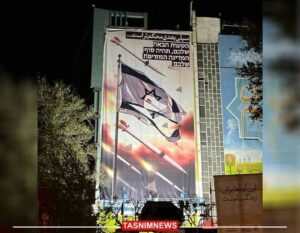The Russian Wagner Group (ChVK Wagner – ChVK being the Russian abbreviation for PMC Wagner – Private Military Company) is a paramilitary mercenary force. The group first began operations in eastern Ukraine alongside Russian separatists, but its global promulgation began at the beginning of the Russian involvement in the Syrian civil war in late 2015. Together with its activities in Syria, the group was (and possibly is still) involved in operations in Libya, Sudan, Mali, Chad, and Mozambique. The group is engaged, among other things, in securing the oil fields in northwestern Syria for a certain percentage of the revenue from oil production. According to our information, the militia group enjoys 25 percent of the revenue in every oil field it secures.[1]
The mercenaries of the Wagner Group are not evidently subject to military discipline. According to several indications from 2017, they were involved in atrocities and abuse against local Syrian residents. Some of the acts were posted on social media.
The Wagner Group served as a dominant force in the recapture of Palmyra (northeastern Syria) from ISIS in 2016. Many Wagner mercenaries were killed and wounded in a US airstrike in the Deir ez-Zor area in February 2018. Their deaths were an embarrassment for the Russian government, which announced that the Russians killed and wounded in the attack had arrived in Syria “on their own initiative” and unrelated to the Russian military.[2]
There is great ambiguity about how the group was founded and who is behind it. Dmitry Valerievich Utkin, a former paratrooper in the Russian Army’s Special Forces born in 1970, appears to be the main figure and commander of the Wagner Group. Utkin’s sympathy for Nazism bought the organization its name, “Wagner,” named after the revered Nazi composer. [3]
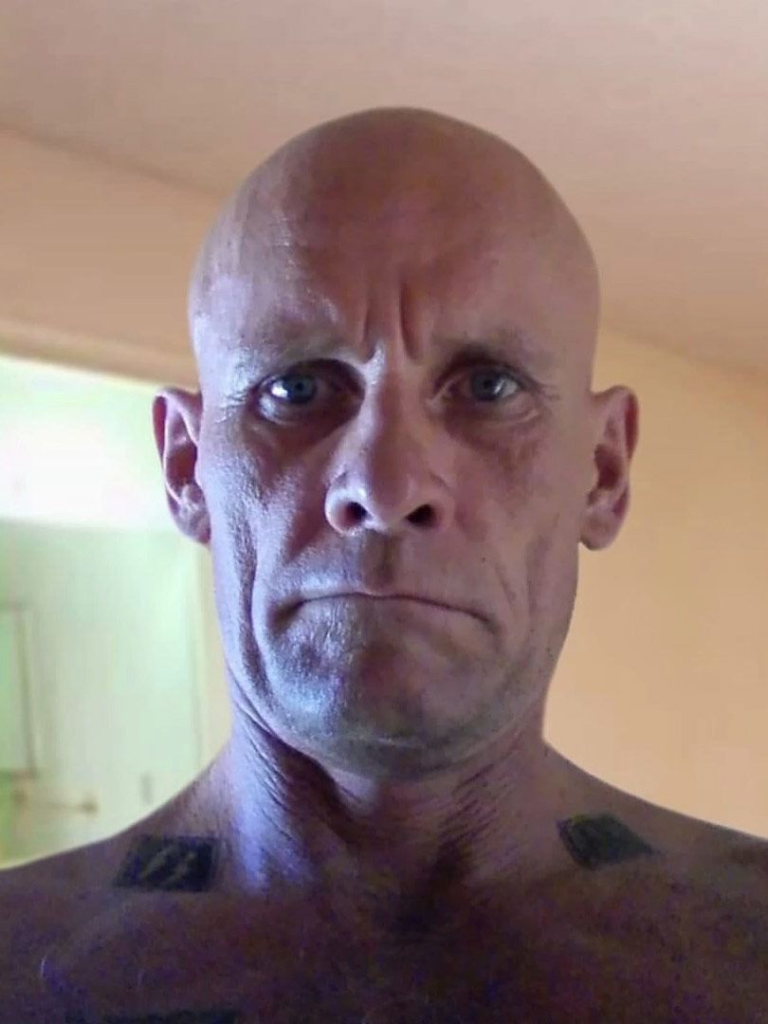

The Wagner Group is not directly subordinate to the Russian military hierarchy. The group is an independent organization directly subject to the Russian Ministry of Defense and Russian Intelligence. The number of mercenaries belonging to the Wagner Group is estimated at about 10,000 individuals who have served on various fronts, anywhere the group took part in combat over the past seven years. Not all of the mercenaries mentioned served simultaneously: 10,000 mercenaries retained signed contracts with the Wagner Group over the past few years – with about 2,500 mercenaries serving in Syria.[4]
Contrary to popular belief, many of the mercenaries in the Wagner Group did not serve in the Russian army because they came from remote towns and were therefore not deemed suitable for military service or had criminal records. Joining the Wagner Group allows them unconventional, and infinitely greater economic opportunities than the low wages offered to people like them in the Russian labor market.
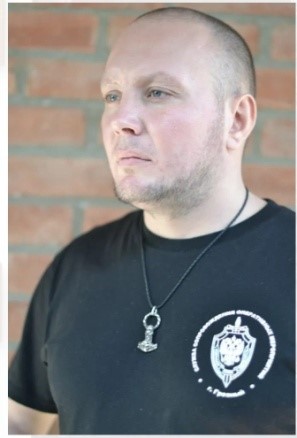
Above: Fyodor Matlakin is 36 years old – a longtime mercenary in the Wagner Group. He is originally from the North of the Caucasus. He has a military background, and he has fought alongside Russian separatists in eastern Ukraine.
The Russian government denies any direct organizational contact with the Wagner Group. A tablet device belonging to the Wagner Group was found abandoned in Libya; it contained material indicating that the Wagner Group has prominent access to “state grade” intelligence materials and weapons such as radars that are likely to have been obtained with government support.[5]
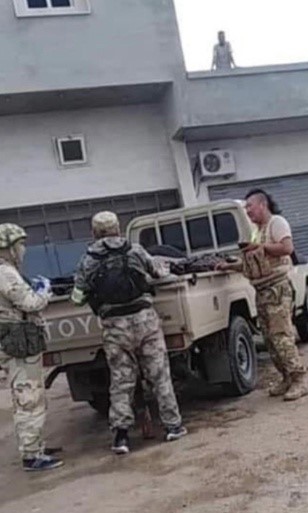
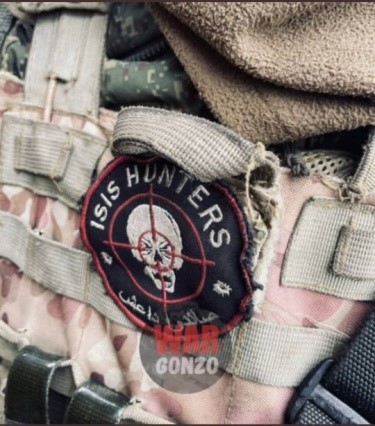
As tensions between Russia and Ukraine intensified, and even more so since the Russian invasion (on February 23), reports have increased indicating that some of the Wagner Group’s mercenaries transferred from Syria and North Africa to Ukraine.
According to reports, Wagner Group mercenaries are directly involved in the fighting and are also involved in recruiting and training Syrian locals to send them as proxies to fight in Ukraine. Despite the reports, there is no confirmation of Syrians on the battlefields in Ukraine.
A unit called “ISIS Hunters” operates within the Wagner Group. The unit has been fighting against members of the Islamic State, emphasizing the area of the oil fields in Deir ez-Zor and northwestern Syria. This unit is considered particularly cruel even by Wagner Group standards. It seems that on March 2, the unit was transferred from Syria to Ukraine[6] for one purpose: the assassination of the President of Ukraine – Zelensky.
Further reports indicate that the Russian military collected Wagner Group mercenaries from various bases throughout Syria, such as from the town of Khasham near Deir ez-Zor and As-Suwayda in southern Syria. The mercenaries arrived at the Russian Hmeimim base north of Latakia, and from there, they were flown to the Ukrainian border.[7]

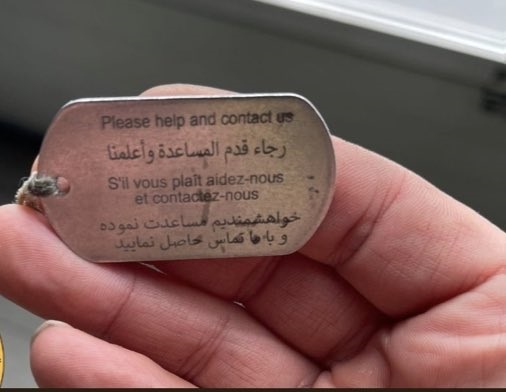
The above photos show dog tags, which Ukrainian intelligence believes belonged to a Wagner Group mercenary killed in action during the fighting in Ukraine. According to the discovered dog tag, one may conclude that these are mercenaries who were transferred from Syria to Ukraine. The dog tags are engraved in four languages (English, Arabic, French, and Farsi): “Please assist and contact” while providing website details and phone number details with a Syrian prefix. From our inquiry, the URL is inactive, and there are no additional details about the phone number.
The Wagner Group is a special proxy force of Russian mercenaries, operating both openly and clandestinely under the auspices of Russian security officials. Ostensibly it is an independent private company, but in practice, it is an organization that receives its resources and guidance from the Russian government. The group allows the Russian government plausible deniability vis-a-vis its actions, hence the advantage in operating it. The Wagner Group operates where there are Russian military interests. Most of its activities until the outbreak of the war in Ukraine were in Syria.
[1] رسالة لـ “الشبيحة” في سوريا: هذا هو راتب مقاتل في “فاغنر” الروسية | SY24 (sy-24.com)
[2] https://amp.france24.com/ar/20180321
[3] https://www.bbc.com/arabic/extra/nYJCjc7HHH/the-lost-tablet-and-the-secret-documents-arabic
[4] https://amp.france24.com/ar/20180321
[5] https://www.bbc.com/arabic/extra/nYJCjc7HHH/the-lost-tablet-and-the-secret-documents-arabic
[6] https://twitter.com/ahmedalasi/status/1499055498594852873?t=LjhpozZKwtp94ueo9fsoIQ&s=08
[7] https://twitter.com/Osalsera3sham/status/1499730205493051392?t=Ocw6VxBP5qqLqEZiXvptNw&s=08





